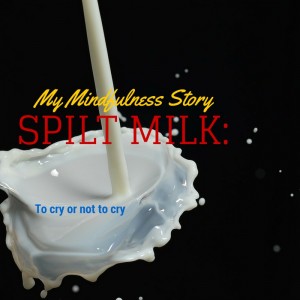 As a child, I remember one night when I had a hard time falling asleep. My mom had me lay on my back and she talked me through a relaxation exercise of resting my muscles. It ended with me closing my eyes and picturing myself floating on a cloud.
As a child, I remember one night when I had a hard time falling asleep. My mom had me lay on my back and she talked me through a relaxation exercise of resting my muscles. It ended with me closing my eyes and picturing myself floating on a cloud.
In college, I took yoga classes at the Student Health Center and later I followed “Priscilla’s Yoga Stretches” on PBS in my living room. Like many Westerners, I viewed yoga as just a relaxing physical exercise versus one component of a larger mindful lifestyle.
Later in life, I participated in a Mind-Body workshop, to address a particularly devastating situation. During that experience, I shared my personal story as part of a research study by Dr. Liz O’Donnell entitled, Facing Infertility: Design and Evaluation of a Mind-body Program for Effective Emotional Support. The simple fact is, the advice to “just relax” is not a solution for infertility or any other diagnosed medical condition. While Mind-Body practice will not erase all of the physical or emotional pain and stress associated with a medical condition, research shows that it can help reduce symptoms. It can be a beneficial tool not only for patients, but also for family members in trying times.
“Just relaxing” is a flawed definition of mindfulness. Mindfulness is a practice. In 2013, I participated in Dr. Maryanna Klatt’s Mindfulness in Motion, an 8-week mindfulness-based stress reduction (MBSR) program. One of her valuable reminders to us was, “It doesn’t work unless you do it.” She also advocates, “With practice, one can become more mindful throughout the day, not just during formal practice periods.” What I recognize now, versus the previous examples from earlier times in my life, is that when I turn to mind-body exercise, it is of value for my overall health. Practicing mindfulness helps with my overall stress level and helps me to default to a deescalated state in stressful situations that span from sleepless nights to difficult life circumstances. This recognition is best illustrated through a story about when I recognized mind-body practice as a subtle and positive influence in my daily routine.
It was a very early December morning. I needed to get my youngest to child care and then drive three hours to Columbus, Ohio for a presentation. About the time we should have been walking out the door, I dropped a quart of milk on the floor. The bottom busted out of the container and the milk quickly spread across the kitchen floor.
Before practicing mindfulness, I can anticipate that my first reaction might have been disgust with myself. The questions in my mind would have been: “Are you kidding me???! I don’t have time for this!!!! How could I be so klutzy???? I am going to be so late!” It would have been incredibly easy to melt into tears or allow that mess to ruin my entire outlook for the day.
Instead, with my arsenal of mind-body practice, the following proverb popped into my mind and I almost laughed out loud: I don’t cry over spilt milk. It was enough to cause me to take a breath, move the baby away from the mess, quickly mop it up and leave town for the conference.
Often, because of subtleness, it’s hard to identify all of the times in a day when mindfulness is doing its work. Remembering my split milk story drives the importance of mind-body practice home for me. I am happy that OSU Extension is offering lessons on mindfulness across Ohio.

